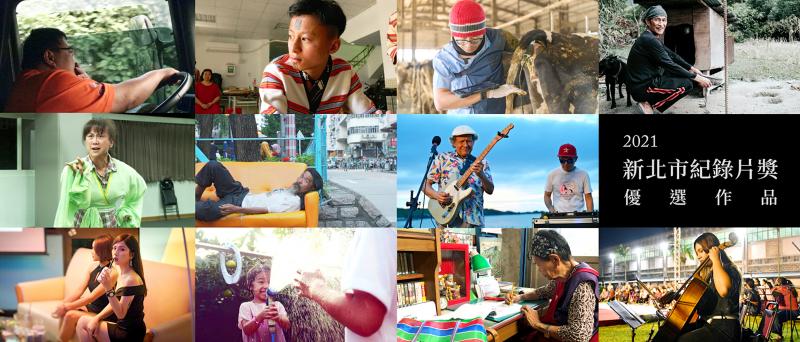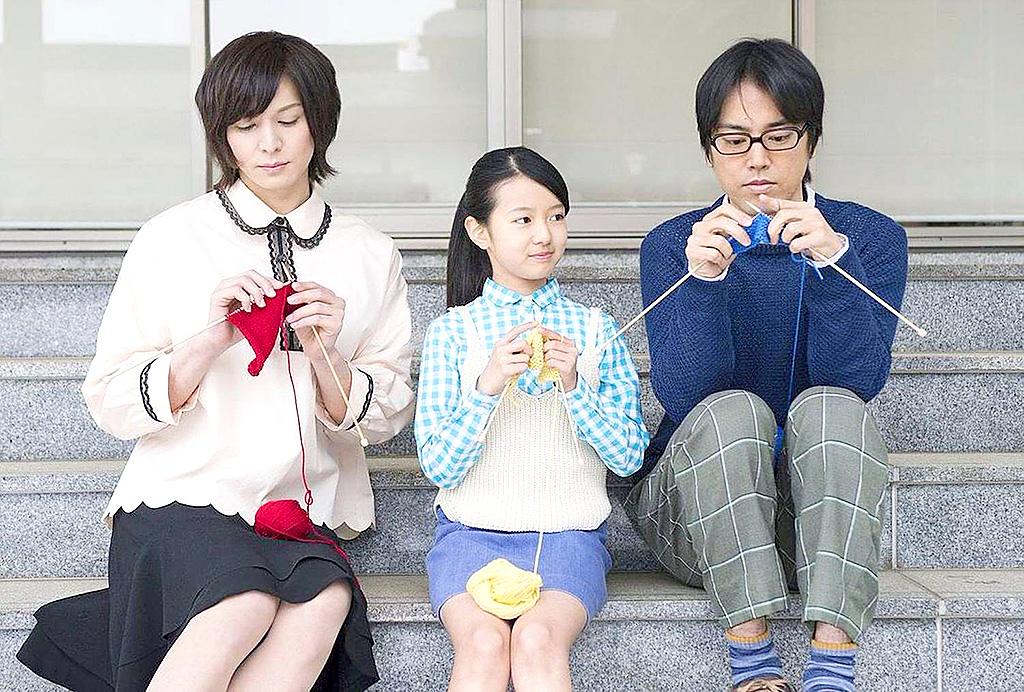With many upcoming free screenings and festivals completely booked out, cinema buffs need not despair. There are still a few options available at no cost, but those interested better get moving quickly. The Taipei Limitless Film Festival (台北無限影展), which features pieces about people with physical and mental disabilities, had sold out as of yesterday afternoon.
While there are no tickets left for the New Taipei City International Documentary Festival’s month-long online program, it has made available until Tuesday a selection of 11 previous winners of the New Taipei City Documentary Awards -- and the best part is that they’ve added a discussion with the director after each film.
The diverse program and relatively short running times make for a colorful and thought-provoking kaleidoscope of the less apparent aspects of Taiwanese society: Adju (歌舞的我們) refers to a Paiwan word that has in modern times become a term for indigenous LGBTQ people and explores queer indentity, Vespas, Typhoons and Diplomats (偉士牌、颱風、外交) looks at early expat bands in the 1980s and Glad Rags (酒與妹仔) features hostess club staff who try to overturn their profession’s negative image and fight for labor rights. For more information, visit www.ntpcdf.tw.

Photo courtesy of New Taipei City Cultural Affairs Department
The Taipei Women’s Center’s winter free screening program kicks off on Sunday with North Country, which tells the tale of the first class-action sexual harassment lawsuit in the US. The program focuses heavily on LGBTQ and women’s rights issues, from surrogacy for lesbian parents in Illegal Mother (非法母親) to a little girl who is sent to live with her uncle and his transgender partner in Close-knit.
Those interested in human rights issues can also check out Sunday’s free screening of Me and My Condemned Son (我的兒子是死刑犯), which is part of National 228 Memorial Museum’s long-running Human Rights Film Festival. Due to the COVID-19 outbreak, this year’s schedule has been greatly reduced, but staff say they’ll get back on track next year.
The documentary features three local inmates who were on death row — including MRT random killer Cheng Chieh (鄭捷). The three families deal with their sons’ condemnation differently — the first subject’s parents tried everything to save him, the second one’s mother found the death penalty appropriate, and Cheng’s parents fell somewhere in the middle.

Photo courtesy of atmovies.com
“When their son does something like that, what’s most excruciating for them is that the question [of why they did it] will probably never be answered,” Cheng’s lawyer Huang Chih-hao (黃致豪) says in the trailer. It’s not just the pain of what their child did, they become social pariahs themselves, as evidenced by what’s currently happening to the parents of the three young men who viciously beat a college student after a minor traffic scrape.
Even director Lee Chia-hua (李家驊) has drawn much public flak and verbal abuse for trying to portray these people beyond their crimes — someone told him once that if he liked death row inmates so much, he should take them home and care for them.
“But if we cannot sit down and calmly understand that death row inmates are human too, then we can never have a rational debate over capital punishment,” he says in an Taiwan International Documentary Festival interview.

Photo courtesy of National 228 Memorial Museum
Finally, if anime and cartoons are your thing, there are still quite a few tickets left to the month-long free festival at the Taoyuan Arts Cinema. Visit www.taoyuan.arts-cinema.com for more information.

In late October of 1873 the government of Japan decided against sending a military expedition to Korea to force that nation to open trade relations. Across the government supporters of the expedition resigned immediately. The spectacle of revolt by disaffected samurai began to loom over Japanese politics. In January of 1874 disaffected samurai attacked a senior minister in Tokyo. A month later, a group of pro-Korea expedition and anti-foreign elements from Saga prefecture in Kyushu revolted, driven in part by high food prices stemming from poor harvests. Their leader, according to Edward Drea’s classic Japan’s Imperial Army, was a samurai

The following three paragraphs are just some of what the local Chinese-language press is reporting on breathlessly and following every twist and turn with the eagerness of a soap opera fan. For many English-language readers, it probably comes across as incomprehensibly opaque, so bear with me briefly dear reader: To the surprise of many, former pop singer and Democratic Progressive Party (DPP) ex-lawmaker Yu Tien (余天) of the Taiwan Normal Country Promotion Association (TNCPA) at the last minute dropped out of the running for committee chair of the DPP’s New Taipei City chapter, paving the way for DPP legislator Su

It’s hard to know where to begin with Mark Tovell’s Taiwan: Roads Above the Clouds. Having published a travelogue myself, as well as having contributed to several guidebooks, at first glance Tovell’s book appears to inhabit a middle ground — the kind of hard-to-sell nowheresville publishers detest. Leaf through the pages and you’ll find them suffuse with the purple prose best associated with travel literature: “When the sun is low on a warm, clear morning, and with the heat already rising, we stand at the riverside bike path leading south from Sanxia’s old cobble streets.” Hardly the stuff of your

April 22 to April 28 The true identity of the mastermind behind the Demon Gang (魔鬼黨) was undoubtedly on the minds of countless schoolchildren in late 1958. In the days leading up to the big reveal, more than 10,000 guesses were sent to Ta Hwa Publishing Co (大華文化社) for a chance to win prizes. The smash success of the comic series Great Battle Against the Demon Gang (大戰魔鬼黨) came as a surprise to author Yeh Hung-chia (葉宏甲), who had long given up on his dream after being jailed for 10 months in 1947 over political cartoons. Protagonist